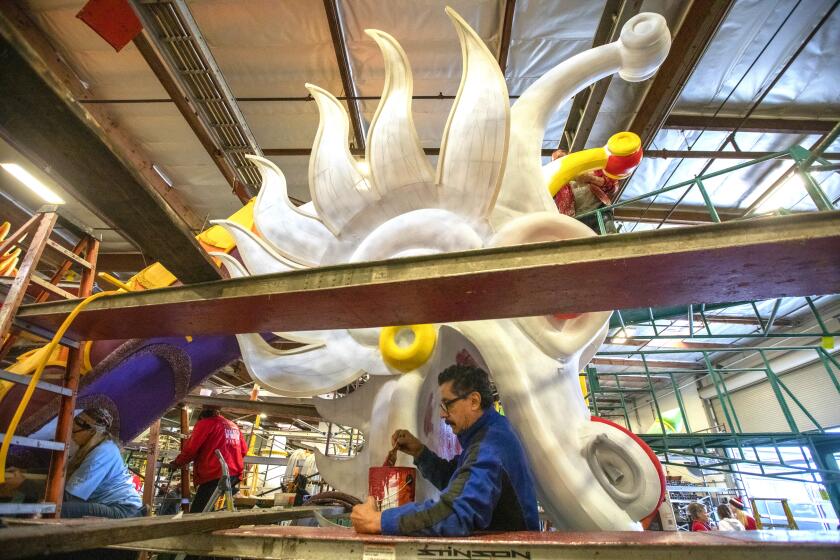
For more than 160 years, pasteurization has been heralded as one of the most effective and efficient forms of ensuring public food safety. But as health officials scramble to ascertain and contain the spread of bird flu in the nation’s dairy cattle, a growing number of state governments are turning their back on this gold standard of public health.
In the last four weeks, Iowa, Louisiana and Delaware have either passed legislation or are in the process of moving bills that would legalize the commercial sale of raw milk for human consumption within their borders.
The commercial sale of raw milk in California is legal, although not all stores choose to sell it.
“The science and technology of pasteurization has been keeping people safe since the 1860s,” said Michael Payne, researcher and outreach coordinator at the University of California’s School of Veterinary Medicine’s Western Institute of Food Safety and Security.
“When we don’t pasteurize milk we get outbreaks,” he said, citing recent outbreaks from salmonella in California and three other states, as well as a 2023-24 E. coli outbreak caused by cheese made with raw milk that sickened 11 people across five states. He said five of the 11 victims were hospitalized and two developed hemolytic uremic syndrome, or HUS, a serious condition that can cause kidney failure and brain damage.
Despite warnings of H5N1 bird flu outbreaks among dairy cattle, raw milk enthusiasts say they will continue to drink unpasteurized milk.
“While I believe strongly that people should be able to eat whatever they choose to produce or herdshare, including raw milk, I have campaigned aggressively in the past against sale of commercial raw milk in stores as a matter of public safety,” he said. (A herdshare is a system in which a customer can buy a “share” of dairy herd, and receive milk and other dairy products in return).
“People desperate to believe they’ve found the silver bullet for health cannot be dissuaded and villainize a technology that has done more for food safety than any other invention. After testifying to the state Legislature against the sale of raw milk in stores I was once escorted out the ‘members only’ access because of police fears for my safety,” Payne said.
But state lawmakers pushing for raw milk access say they are more concerned about “food freedom” and the potential benefits that would come to dairy farmers — i.e., being able to charge more money for their product — than a problem they don’t see discussed in the news.
“There is very real evidence to say that this space is safe... and I haven’t seen those deaths... across folks that use raw milk,” said Delaware state Sen. Eric Buckson, who was author of a bill that would allow consumers to purchase raw milk from farms. “Certainly, there are those that can get an upset stomach or get sick from it. They recover rather quickly from it.”
It’s a comment that confounds Mary McGonigle-Martin, a Murrieta resident, who believed that providing her young son raw milk would make him healthier, until it nearly killed him.
In 2006, her son Eric drank raw milk contaminated with E. coli 0157:H7. Over the next 24 hours, he became increasingly ill. Hospitalized, he was diagnosed with HUS.
Although he eventually recovered from renal and congestive heart failure, as well as a collapsed lung, acute pancreatitis, high blood pressure and seizures, his kidneys are still compromised, requiring yearly monitoring. He is now 26.
McGonigle-Martin said the embrace of raw milk by politicians, alternative health food influencers, and others is the result of “generational amnesia.”
“One hundred years have passed” since pasteurization became widespread in our food supply, she said. “We did not live in the time where kids died. We didn’t live in the time when pasteurization was invented and pasteurized milk was sought” because parents knew it was safe.
“We would never think of letting our children eat raw chicken or beef,” she said. “That would be crazy, right? Yet we do it with milk. We have lost the wisdom.”
Answering the basics on Bird Flu 2024
Federal officials say they have found high levels of active H5N1 — a highly pathogenic avian influenza — in raw milk. Observations and studies have show that barn cats who drank the contaminated raw milk have suffered horrific symptoms — including blindness, brain swelling and neurological issues — as well as death.
Also, lab mice that were given raw milk from cows infected with H5N1 experienced high virus levels in their respiratory organs and lower virus levels in other vital organs, according to a recent study.
Because of uncertainty about how widespread the infection is within U.S. dairy herds, and the announcement of the third human case of H5N1 earlier this week, officials are warning people to avoid raw milk and products made from raw milk.
Buckson, the Delaware lawmaker, said he understands the concern, but when he looks around, “we know that 30-plus states actively permit the use of raw milk, and we do not have a pervasive breakout or outbreak of avian influenza,” he said.
He said the science on the flu was “unsettled” and early indications suggest “it is not transferable,” and it wasn’t likely going to be “something that’s going to present as a kind of a wave of illnesses that injects itself into raw milk or pasteurized milk, for that matter.”
Delaware currently has some of the nation’s strictest laws regarding the sale of raw milk, adhering to the FDA’s policy that raw milk should not be consumed for any reason. It is currently illegal to sell or transport “any unpasteurized fluid milk or milk product in final packaged form for direct human consumption.”
Laura Matusheski, a spokeswoman for the Delaware Division of Public Health, said her agency “does not comment on pending legislation.”
Kimberly Coates, the Louisiana lawmaker who wrote that state’s pending legislation, which would legalize commercial sales of raw milk, declined to respond.
As researchers scramble to understand the extent of H5N1 bird flu spread, there’s one group of animals they say we should pay special attention to: Our pets.
That legislation, which passed the Louisiana House and Senate, would require warning labels on raw milk products, stating the milk “has NOT been pasteurized and therefore may contain harmful bacteria that can cause serious illness in children, the elderly, and persons with weakened immune systems.”
For products that use raw milk for animal or pet feed, the label would read: “Warning: Not for human consumption — This product has not been pasteurized and may contain harmful bacteria.”
Buckson said that requirements written into the Delaware law will help to keep the product safe.
It’s a sentiment that McGonigle-Martin holds onto. She said she knows the battle to keep raw milk out of stores and in children’s mouths is lost. So, she’s hoping safeguards are put in place that reduce risk and harm. And she wishes parents would educate themselves and turn to public health experts, not TikTok and Instagram influencers, or the raw milk industry.
“I just think that politicians should take a deep breath and realize that the reason why we pasteurize milk is because, you know, back before pasteurization milk was one of the leading causes of children’s deaths,” said Bill Marler, a foodborne illness attorney with the Seattle-area Marler and Clark law firm.
In an email, California Department of Food and Agriculture spokesman Steve Lyle said that his agency and the U.S. Food and Drug Administration “take milk safety very seriously and there are laws on the books that require that milk for human consumption comes from healthy cows.”
“Because cows can be infected before they show signs of being sick, pasteurization provides added food safety assurance. For dairies that do not pasteurize, ensuring that each cow is monitored for health is particularly important. Like most modern dairies in California... progressive methods [are used] to monitor the health of each cow that is producing milk,” he said.










